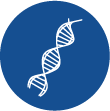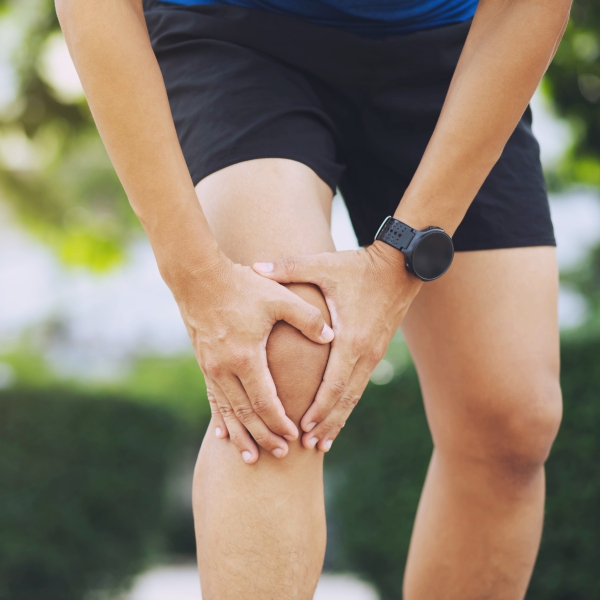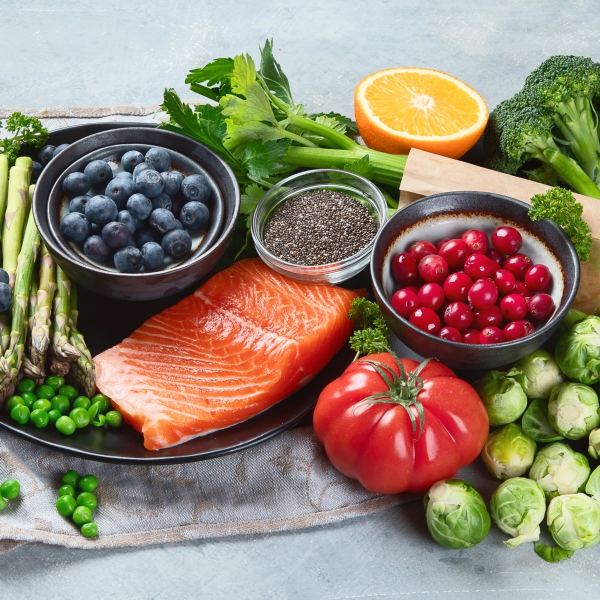Top 5 Vitamins and Minerals for Healthy Hair
Healthy hair requires holistic care. As one of the key indicators of health and nutrition; it is important to understand the impact of nutrition on hair health. Malnutrition will result in deteriorated hair health and possible changes to the structure and texture of your hair. In particular, malnutrition also affects the life cycle of your hair, so people with hair problems should assess their malnutrition risk factors and get a laboratory analysis to determine a suitable treatment and lifestyle modification.
In this article, we will discuss the top 5 vitamins and minerals that are important for healthy hair as recommended by leading dieticians, doctors and researchers.
1. Biotin or vitamin B7
Biotin or vitamin B7, is plentiful in foods such as legumes (dry beans or nuts), whole grains, fish, meat and eggs. However, the Avidin protein in raw egg white prevents the body’s absorption of biotin. Therefore, egg white should be cooked to denature the Avidin before consumption. The Department of Health recommends an recommended intake of 30 mg of biotin per day.
Although no study has found a benefit of biotin supplementation in people without biotin deficiency, oral supplementation of biotin with zinc, as well as topical biotin, are shown to help regenerate better hair growth in people with alopecia areata, a hair loss disease compared to the control group.
However, there are no decisive findings on the right amount of biotin supplement. If you experience hair loss, it is advisable to consult a doctor before buying a biotin supplement.
2. Zinc
Zinc is vital in cell proliferation and is a major component of many enzymes, including superoxide dismutase (SOD), which is an antioxidant. A study found that patients with alopecia areata display reduced functions of this enzyme.
Zinc plays a major role in hair growth and regeneration. It also helps regulate the functions of the sebaceous glands in the scalp, keeping hair loss in check. One symptom of zinc deficiency is brittle hair. Although zinc is crucial for the hair, consuming zinc in excessive amounts can cause side effects such as nausea, vomiting, abdominal pain and diarrhea. Therefore, it’s best to get your blood zinc levels evaluated before taking supplements containing zinc to avoid unpleasant side effects.
Men and women aged 19 years or above need an average of 11 mg and 9 mg zinc respectively. Meat, fish and shellfish are good sources of zinc. For vegetarians, products from grains, tofu and nuts are wise alternatives. It is recommended to soak beans overnight before cooking to reduce the amount of phytate, which inhibits the absorption of zinc.
3. Vitamin D
Vitamin D has a similar structure to sex hormones. It plays an important role in the immune system and anti-inflammatory functions. It also helps regulate calcium and phosphorus levels in the blood, with a daily recommended dose of vitamin D for adults at 600 IU. The Human body can synthesize approximately 80-90% of its own daily vitamin D in the skin when exposed to the Ultraviolet B ray, and the other 10-20% is derived from food.
Vitamin D can be found naturally in foods such as mushrooms or oily fish; such as salmon, tuna, trout and mackerel. Fortified foods are also a good source, and present in fortified orange juices, soy milk, yogurt and breakfast cereals.
A study in mice showed that vitamin D plays a role in the life cycle of hair. People with alopecia areata tend to have low levels of vitamin D in their blood, suffering more severe hair loss the lower their levels of vitamin D. Patients with vitamin D-Dependent Rickets Type II (VDR) often experience hair loss and thinning hair in conjunction.
People with vitamin D deficiency should supplement with vitamin D as appropriate. However, too much vitamin D in the body can cause poisoning from excessive calcium in the blood, its symptoms being fatigue, weakness, nausea, vomiting, frequent urination and kidney calcification.
4. Iron
Iron is an essential mineral that has a part in oxygen transport and DNA synthesis. Therefore, iron is important to the hair cells, which have a high division rate. Iron deficiency can occur from many reasons including menstruation, stomach ulcer, or even blood donation. Iron deficiency is identified by Ferritin levels in the blood, which is a compound of iron stored in the body.
Although the relationship between iron deficiency and hair problems is still being determined, low iron levels can lead to hair loss. This is supported by a study in 2013, which found that hair loss problems in women are linked to the decrease of blood Ferritin levels.
Both plant and animal foods are good sources of iron. These include meat, leafy greens and dry beans. However, excessive consumption of iron supplements may cause gastrointestinal side effects, and receiving more than 60 mg/kg per day can cause organ failure and may result in death. Therefore, one should consult a doctor before taking iron supplements and especially those taking levothyroxine and levodopa should be cautious.
5. Vitamin C (Ascorbic acid)
Vitamin C (Ascorbic acid) is well known as an antioxidant. It is essential in collagen synthesis and intestinal iron absorption. Vitamin C supplementation is found to be beneficial in those with hair loss from iron deficiency. Although the exact nature of the relationship between vitamin C and hair health is still unknown, those who suffer from scurvy, or vitamin C deficiency, will experience changes in their pores and can develop corkscrew hair from the affected hair structure.
A study of cells found that vitamin C has helped in hair growth by increasing the production of Insulin Growth Factor-1 (IGF-1) in dermal papilla cells of the hair follicle.
Vitamin C is abundant in fruits and vegetables such as guava, tamarind, camachile, rambutan, papaya, pomelo, bell pepper and broccoli. In terms of daily intake, men require 100 mg vitamin C per day, while women are recommended 85 mg per day. Vitamin C consumption is crucial to patients with iron deficiency hair loss.
Supplementation of vitamins and minerals for hair nourishment focuses on correcting nutritional deficiencies. It is important to keep in mind that hair health is strongly linked to overall health and maintaining a balanced lifestyle with a well-rounded diet. Before embarking on supplementation program it is, therefore, important to consult a doctor before taking such supplements, to determine the levels of vitamins and minerals in their blood first for safety and to optimize health results; since all individuals are different.
Reference
- O'Connor K, Goldberg L. Nutrition and hair. Clinics in Dermatology. 2021;39(5):809-818.
- Ruiz-Tagle S, Figueira M, Vial V, Espinoza-Benavides L, Maria M. Micronutrients in hair loss. Our Dermatology Online. 2018;9(3):320-328.
- Bureau of Nutrition, Department of Health, Ministry of Public Health. DIETARY REFERENCE INTAKE FOR THAIS 2020. 1st ed. Bangkok; 2020.
- Rasheed H, Mahgoub D, Hegazy R, El-Komy M, Abdel Hay R, Hamid M et al. Serum Ferritin and Vitamin D in Female Hair Loss: Do They Play a Role?. Skin Pharmacology and Physiology. 2013;26(2):101-107.
- Oxidative stress and alopecia areata




